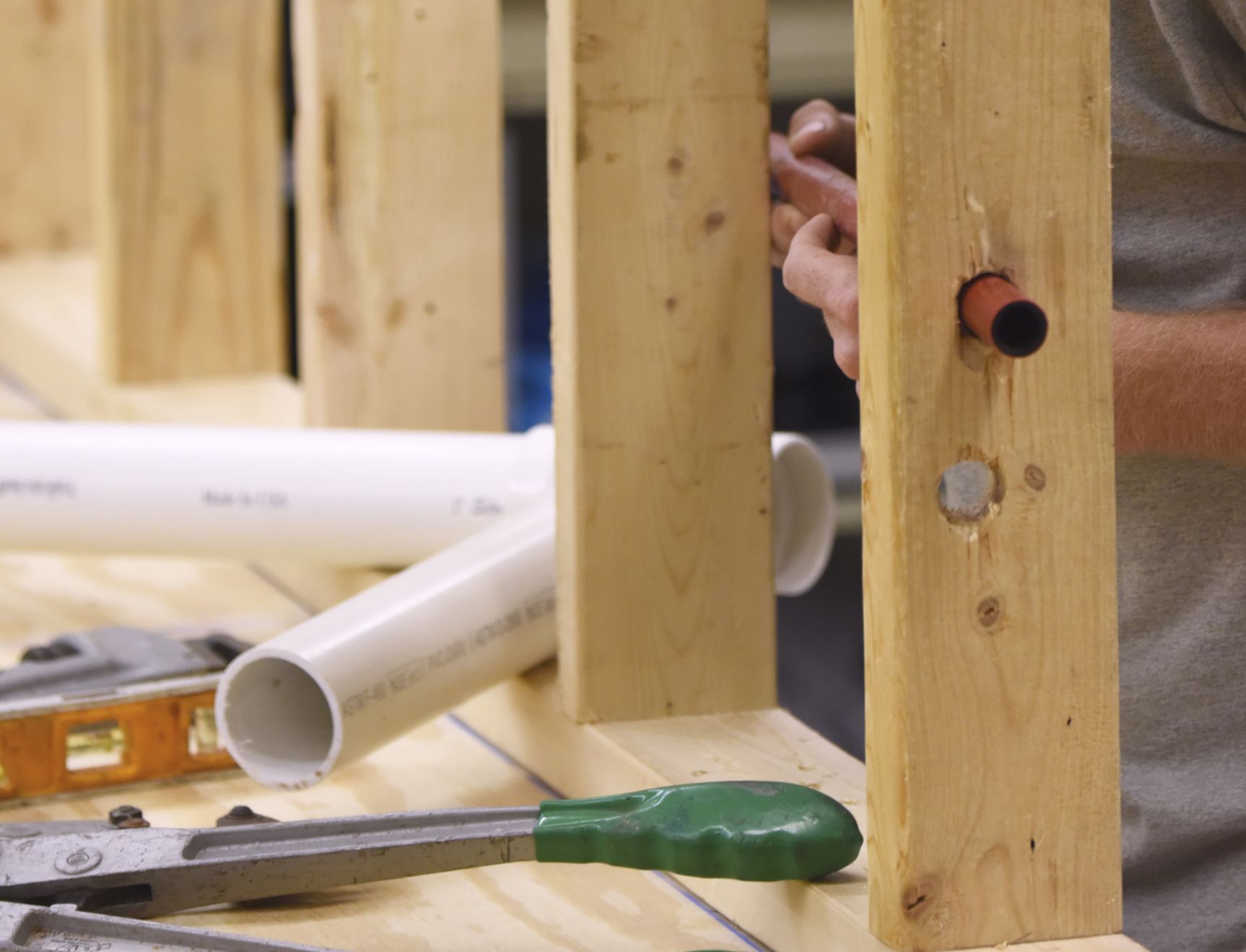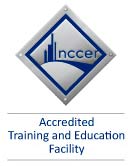
Contact the Pensacola State College Applied Technology and Professional Services Department for assistance in planning your program of study.
phone: (850)484-2544
email: admissions@pensacolastate.edu
ACCREDITED BY:
Pensacola State College is an approved NCCER Accredited Training and Education Facility under the sponsorship of The Southern Company. http://www.nccer.org/
RELATED DOCUMENTS
RELATED LINKS
SITE LINKS
SEARCH PROGRAMS
INTRODUCTION
This program prepares students for employment or advanced training in a variety of pipe occupations by focusing on broad, transferable skills, and stressing the understanding of all aspects of the plumbing industry. Topics include pipe fitting, plumbing tools, types of valves, DWV (drains, waste, and venting), and potable water treatment leading to entry-level positions within the plumbing industry. Plumbers install, maintain, and repair many different types of pipe systems in residential, commercial and industrial settings. For example, some systems move water to a municipal water treatment plant and then to residential, commercial, and public buildings. Other systems dispose of waste, provide gas to stoves and furnaces, or supply air conditioning. The curriculum follows The National Center for Construction Education and Research (NCCER) guidelines and leads to Level 1-4 certification. This program prepares students for employment or advanced training in a variety of pipe occupations by focusing on broad, transferable skills, and stressing the understanding of all aspects of the plumbing industry. Topics include pipe fitting, plumbing tools, types of valves, DWV (drains, waste, and venting), and potable water treatment leading to entry-level positions within the plumbing industry. Plumbers install, maintain, and repair many different types of pipe systems in residential, commercial and industrial settings. For example, some systems move water to a municipal water treatment plant and then to residential, commercial, and public buildings. Other systems dispose of waste, provide gas to stoves and furnaces, or supply air conditioning. The curriculum follows The National Center for Construction Education and Research (NCCER) guidelines and leads to Level 1-4 certification.
Basic entry-level skills in math, reading, and language must be attained in order to complete this program. Students wishing to enter this program of study should be advised by the instructor or program manager prior to enrollment in these courses.
IS THIS FOR YOU
People in this profession need physical strength as well as stamina. They may lift heavy pipes, stand for long periods, and work in uncomfortable or cramped positions. They may also work outdoors
BEYOND GRADUATION
With additional training, Plumbing Technology graduates may become supervisors for mechanical and plumbing contractors. Some may go into business for themselves. Others may move into closely related areas such as construction management or building inspection.
Licensing requirements vary from area to area, but most localities require workers to pass an examination that tests their knowledge of the trade and of local plumbing codes.
RELATED CAREER OPPORTUNITIES
Primary Employers
Graduates from the Plumbing Technology program become pipelayers, plumbers, pipefitters, sprinkler fitters, and steamfitters. Combined, these occupations are often lumped into the category of plumber — one of the largest construction occupations. Graduates will install, maintain, and repair many different types of pipe systems.
Occupations
Pipelayers
Prepare and grade trenches either manually or with machines. Within the trenches, they lay clay, concrete, plastic, or cast-iron pipe for drains, sewers, water mains, and oil or gas lines.
Plumbers
Install and repair water intake, waste disposal, drainage, and gas systems in homes and commercial buildings. They also install plumbing fixtures and appliances such as sinks, bathtubs, showers, toilets, water heaters, dishwashers, and icemakers.
Pipefitters
Install and repair both high- and low-pressure pipes systems used in manufacturing, in the generation of electricity, and in the heating and cooling of buildings. They also install automatic controls that are increasingly being used to regulate these systems.
Other Occupations
- Sprinkler fitters
- Steamfitters

 PirateQ
PirateQ 
